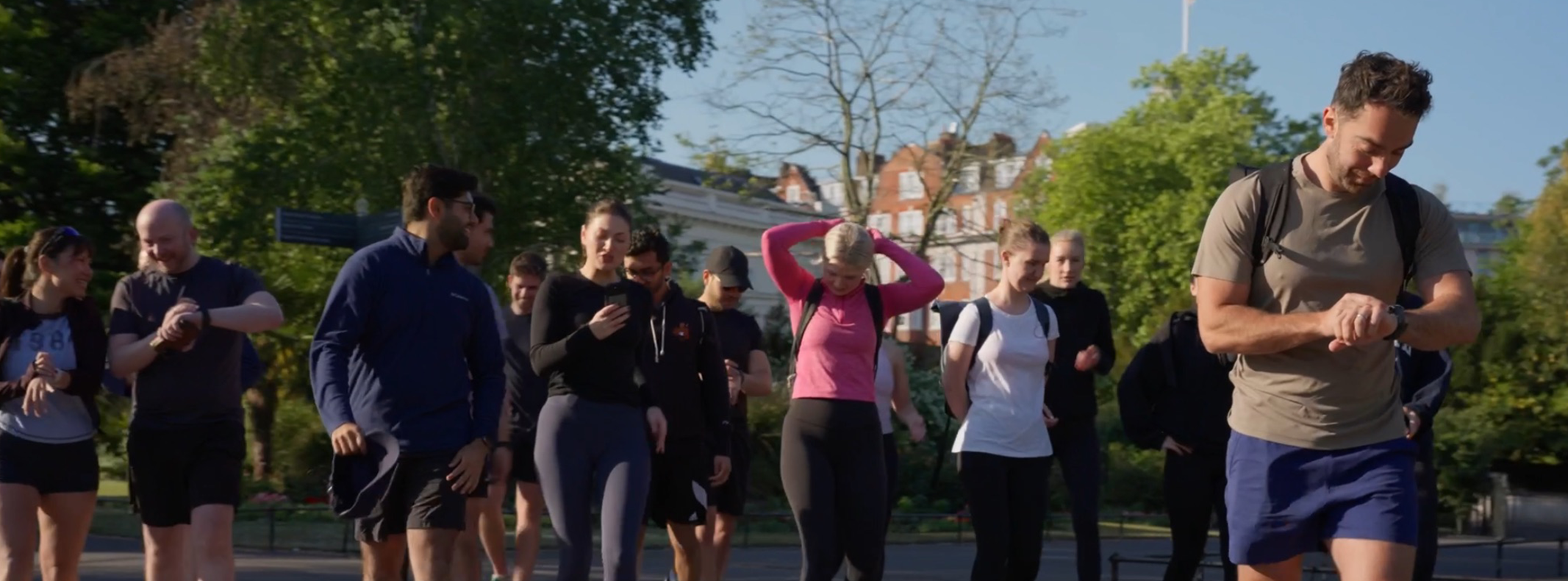Filling the Vacuum: can brands replace a lost sense of belonging?
Spending time with a bunch of 16-18 year old students from inner-city London schools, as part of Octopus Ventures Work Experience week recently, a discussion on consumer behaviour trends took a surprising turn towards the concept of ‘belonging’, or more specifically the lack of it at a societal level. Never a dull moment with young people. Their openness about the problem of belonging, and some realistic views on companies’, brands’ and platforms’ ability to plug that gap, reaped some interesting views.
The need to belong
Plenty has been written about the crisis of meaning in the world today, as well as the struggle of young people (and older ones too) to feel they belong in a world where group identity – and its corollary, group division – leaves the individual isolated and anxious. Belonging, a basic human need, fights to get a foothold in a global culture of hyper-individualisation.
For those of us in the business of building companies and brands, are we naive to imagine that the fruits of our labours can help bring about a greater sense of belonging?
Community
In Aldous Huxley’s Brave New World, ‘Soma’ is a drug handed out to the citizens of the World State, creating pleasant hallucinations and a sense of timelessness. Today, lives spent immersed in a K-Pop universe or obsessive online shopping, truly believing Brand X is worth the 500% premium, is probably more akin to Huxley’s Soma-induced distraction than a genuine sense of belonging: a true opiate of the masses. And the link between the rise of social media and anxiety and isolation has been well documented. But does time spent in a metaverse, such as Decentraland, where you’re invited to “create, explore and trade in the first-ever virtual world owned by its users” provide the sense of community lacking in many of the world’s high rise urban societies? Decentraland uses the Ethereum blockchain to record the ownership of all digital assets and tradable items. At any one time, participants can join events ranging from NFT art exhibits, interfaith prayers for humanity in the “Lotus Temple” or “Sunday Funday Karaoke”. Yes, there’s a nest of casinos here too, but that aside, the scope for individuals to create networks, relationships and reputations here, beyond physical limits, does become a reality. Entrepreneurs will be drawn in to Decentraland by the business opportunities of such platforms, further fuelled by the “side hustle” trend coming out of Covid. Whether these social constructions have the substance to meet the basic human need of belonging is yet to be fully tested, but the tech is going in a direction – particularly in terms of AR (Augmented Reality) – where the difference between realities, virtual and ‘real’, begins to collapse.
Could the sense of belonging known to football and music fans ever aggregate in these spaces? Mark Schaefer, a social media consultant and author, makes an interesting point here: “There does not have to be a mutual connection to establish a relationship. I have followed Bruce Springsteen since I was kid. I love this man and his music. He has played a very important part in my life. Yet I have never met Bruce and probably never will. I have a deep emotional connection to a brand who never knows I exist.” This should provide some hope to companies wishing to connect to their customers, so long as they provide experiences and products of the lasting depth of ‘The Boss’. And as we all consider our own individual searches for meaning, community, and truth, brands that understand this will realise that this innate human desire transcends borders – we can form connections to people, and companies, from anywhere.
Figure-heads
All successful brands have a distinct personality, but many have a prominent person – usually the founder – behind them too. Gymshark, for example, was founded by Ben Francis in 2012 when he was 19. He may not have reached superstar status, but to its customers, Ben (and his biceps) remains at the forefront of Gymshark’s persona in the 100+ countries it sells in to. At the other end of the scale, Elon Musk and Richard Branson’s Tesla, SpaceX and Virgin brands, would be hard to imagine without the backing of a legendary figure-head. “Messianic” is perhaps going too far, but the magnetism of those brands is largely down to the perceived personas of the maverick commercial activists behind them. Of course the products ultimately carry the brand, and if they fail to innovate and perform then no amount of public persona power can keep a company afloat. (Despite its intriguing protagonist and dazzling product, DeLorean cars was doomed to infamous failure.)
A brand has the ability to penetrate many aspects of an individual’s life: she might fly, insure, bank and be entertained by Virgin for example. But the smartest brands know not to overreach themselves: Apple sticks to what it knows and has, so far, resisted the urge to enter fashion, kitchenware, or transport (although that may all be about to change). Were it to put its mark on a smart electric scooter, it’s possible its global fanbase would accept and embrace that extension, but each foray a brand makes into a customer’s life carries with it the risk of losing the very sense of belonging and meaning the customer is prepared to pay a premium for.
The dating game
The next social platform is likely to be built around a gaming community. 2Up, a site for gamers looking to connect and/or date, states its goal: “to get gamers, both hardcore and casual, to come together and form a special bond amongst themselves; one that can not only be built in-game, but in real life as well”. So here is the recognition of people’s need to connect, as well as the gaming universes’ potential to provide the necessary conditions. Churches have been closing for decades and now High Streets and shopping malls are following suit. As the physical hubs of connection disappear, the need for them does not, and so their digital equivalents step in to fill the gap. Terms like “brand evangelist” and “brand passion” are not new, but marketers expecting these terms to take on a deeper meaning will have to make sure the products and services they’re offering can provide the in-depth, lasting experiences demanded by people’s need to connect and belong.
Beyond that, they must recognise the responsibility that comes with this task. Social media has faced considerable criticism for its capacity to unravel community – a basic human need from childhood to old age. Facilitating friendship in schools leads to happier pupils; a feeling of belonging scratches an inherent itch. A 2010 study from Duke University and NYU, entitled “Brands: The Opiate of the Nonreligious Masses?”, proposed that “brands and religiosity may serve as substitutes for one another because both allow individuals to express their feelings of self-worth.” Could this be true? Our work experience cohort and their peers are about to find out.













